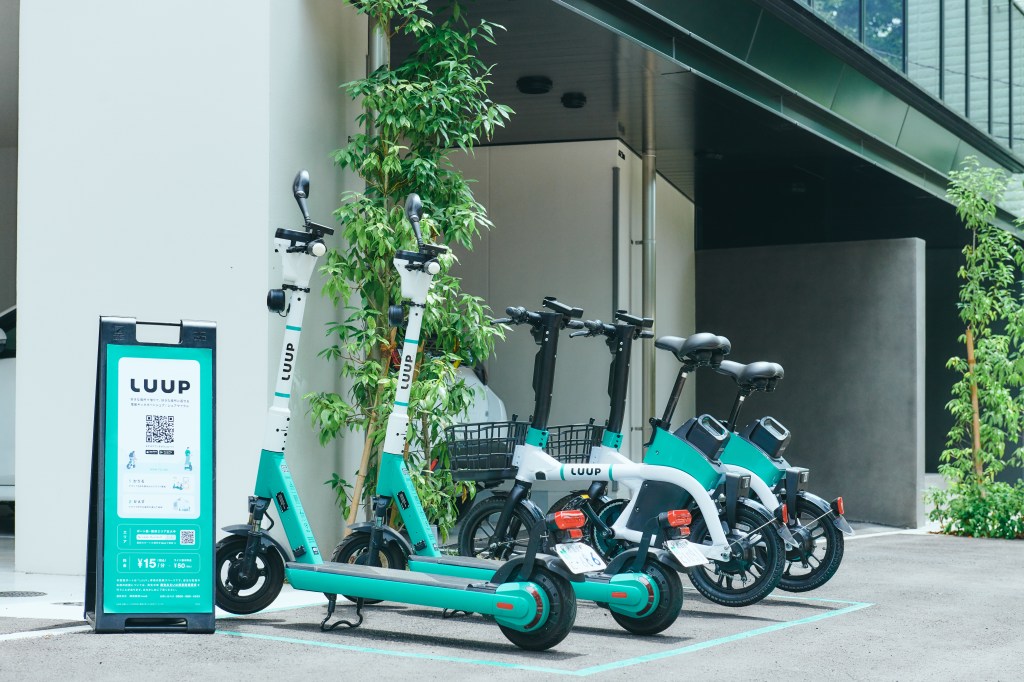Japanese shared micromobility startup Luup has raised $30 million (4.5 billion yen) in a Series D financing round, which consists of 3.8 billion yen in equity and 700 million yen in debt.
Luup has now amassed a total of $68 million in equity, debt and asset financing to date, at what sources said valued the firm at more than $100 million. The company declined to comment on the valuation.
In light of the sector’s growing popularity, the Japanese government has been proactive in loosening e-scooter regulations to further stimulate the micromobility industry. Starting this July, amendments to the country’s Road Traffic Act will permit e-scooter users to ride without driver licenses or helmets, as long as they maintain a maximum speed of 20 kilometers per hour.
In an interview with TechCrunch, Luup CEO Daiki Okai said the startup’s ambitious plan is to expand its e-scooter and e-bike business across Japanese cities and tourist destinations. It aims to achieve a scale comparable to traditional public transportation modes, such as trains, catering to hundreds of thousands of daily commuters. Luup also wants to transform underutilized open spaces into “ports,” or delegated parking stations for its e-scooters and e-bikes, including office buildings, condominiums, storefronts and smaller urban spaces.
Historically, Japanese cities were developed around major train stations, which has resulted in an inconvenient transportation system for those living far from these central hubs. Luup aims to make the entire city “a station front,” creating a high-density network to bridge the convenience gap for those living farther from train stations, he said.
Founded in 2018, Luup introduced its shared e-scooters in 2021 and has grown its fleet to approximately 10,000 e-scooters and e-bikes. The company reports over 1 million app downloads in Japan and has expanded its network of ports to 3,000 across six cities this year. Luup’s goal is to operate more than 10,000 parking stations by 2025.
Although other companies such as Docomo Bike Share and Open Streets also operate shared e-bikes, they lack e-scooters and have fewer ports than Luup. The Japanese startup currently holds the largest number of ports in Tokyo, Osaka and Kyoto. Some global e-scooter operators have also entered the Tokyo market, such as the U.S.-based Bird and South Korea-based Swing, but they have had limited success so far.
With the revised Road Traffic Law going into effect this July, Okai said he anticipates a surge in commuters, including foreign visitors, as e-scooters will no longer require a Japanese driver’s license. He also sees potential for Luup’s high-density station network to facilitate expansion into broader infrastructure businesses, such as drone and delivery robot hubs.
Tokyo-based Luup to more than double shared e-scooters, e-bikes































Comment